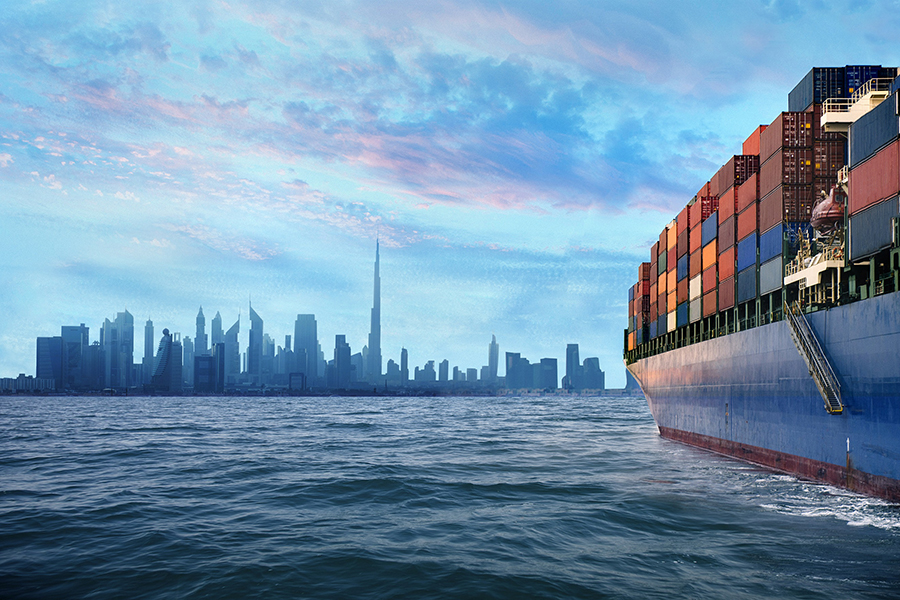Dubai has successfully retained its leading position as among the world’s top five destinations for the maritime industry in the International Shipping Centre Development, ISCD, Index.
The emirate’s continuing status as a global hub for maritime shipping and logistics was revealed in a report that was recently issued by Baltic Exchange, and Xinhua, a London-based international news agency affiliated with the China Economic Information Service, CEIS.
For the fourth consecutive year, Dubai occupied fifth place among the 20 most powerful international centers for maritime commercial shipping and first place in the region, ranking ahead of Rotterdam, Hamburg, Athens / Piraeus, New York / New Jersey and Ningbo / Zhoushan. According to the ISCDindex report for 2021, Singapore, London, Shanghai and Hong Kong are the top four centres for global freight.
His Excellency Sultan bin Sulayem, Chairman of the Ports, Customs and Free Zone Corporation, expressed his optimism following the results of the recent report and said that Dubai’s ability to maintain its position among the world’s top five destinations for maritime shipping for the fourth year in a row is a testament to the city’s leading position in the sector and the exceptional maritime business environment that exists in the UAE.
Bin Sulayem said the latest recognitionreflectsDubai’scompetitiveness on the global shipping landscape and ability to implement scientific frameworks and policies that enhance the efficiency of the maritime sector.
His Excellency added that for Dubai to retain its leading position as only city in the Arab world on the list is clear evidence of the emirate’s continued growth and keenness to strengthen its position on the global maritime map.
Sheikh Saeed bin Ahmed bin Khalifa Al Maktoum, Executive Director of the Dubai Maritime City Authority,said that the International Shipping Centre Development Indexevaluatesthe competitiveness of attracting maritime businesses and the extent of development in maritime centres around the world. Additionally it evaluates their impact in advancing the growth of the global shipping sector. The index also evaluates government transparency within each country on the list, while also taking into account the ease of doing business, the performance of logistics services and capabilities of the departments and e-governments of the countries.
The Executive Director of the Maritime Authority explained the index evaluates three primary indicators (port infrastructure, shipping services and general environment) and 16 secondary indicators using a comprehensive evaluation model to assess the overall performance of 43 cities around the world that provide port and shipping business services.
Sheikh Saeed indicated that the index was based on a number of secondary factors, including; the rate of transporting dry and liquid cargo, the number of cranes, the capacity of containers and the port draughts. It also measured the number of shipping services provided by the countries, such as shipping brokerage, shipping engineering, shipping business and shipping financing, as well as maritime legal services and customs tariff for shipping.

